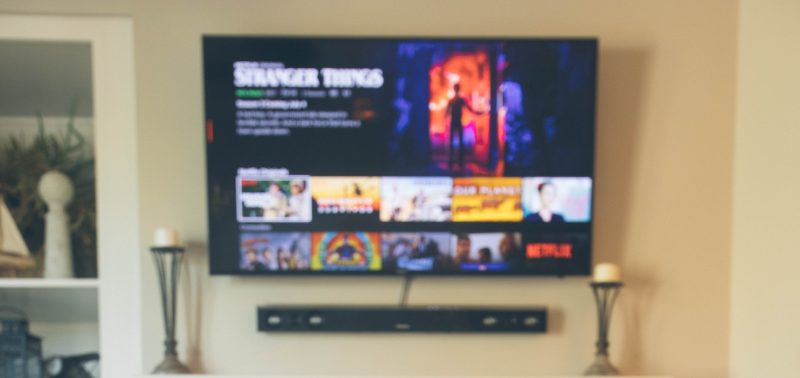It’s the dream, isn’t it? Owning a vacation rental on the Outer Banks can be a rewarding experience – access to secluded beaches, world class fishing, and allowing renters to help pay your mortgage every month as you accumulate equity. On the other hand if you buy the wrong house, it can be an endless stream of headaches and repairs. But what many buyers fail to account for are the expenses involved in purchasing their dream home here at the beach. These small details can make all the difference!
Expenses Before Closing

You don’t just allocate money to a property at the closing table, you will start spending money as soon as you get a property under contract! Here in North Carolina we use the typical earnest money deposit found in many other states, but we also use something called a Due Diligence Fee. The due diligence fee is a fee you pay to the seller for the privilege of doing your due diligence on his property. You want to get a home inspection, your appraisal will need to be close to the purchase price, etc. So for the privilege of doing this (and the seller removing his home from the market while it’s under contract), you can pay the seller a “fee.” This due diligence fee is applied toward the purchase price if you move forward with the purchase, but you won’t get it back if you decide to walk away. The earnest money deposit would be returned to you if you decided to walk away but only if you terminate the contract during the due diligence period. The due diligence period is a timeframe during which you can do all of your inspections and research and decide if the house is right for you. If a closing is set for 60 days from the offer date, the due diligence period might last for 30-40 days.
On an $800k home I might suggest that a buyer include a $4k due diligence fee and a $10k earnest money deposit. This is hypothetical but let’s just assume those numbers. We also want to get a home inspection, which for a home of that size might be $800-$1,000. Do you want a pool or septic inspection? Those might be another $200-500. Do you want a pest inspection? This could be another $250. So before you get to the closing table, that could be over $16,000 just for deposits and inspections. Another expense might be with your lender – you will have to pay for the appraisal of the home, and you may want to purchase discount points for a lower interest rate. You will typically pay an origination fee as well as an application fee. It’s adding up!
Expenses At Closing

Now we get to the closing disclosure form! If you haven’t seen one of these, here’s a sample of what this form could look like. It can be a little overwhelming to see the long list of expenses and things the seller pays for, things the buyer pays for, and some of the unexpected expenses. In our area closings are handled by attorneys, while in other states they might use title companies. As a general rule closing costs are typically 0.75% of the purchase price for buyers up to about $500k, 0.65% up to $750k and 0.5% or less once you get past that, but this number could be higher depending on the specifics. Are you buying a condo? You might have to pay for a condo questionnaire. This 0.75% number covers the items that attorneys will do to verify the title of the property, as well as attorney fees and miscellaneous other items (prorated taxes, insurance, escrow for HOAs, etc). You will also need to wire the remainder of your down payment to the attorney’s office at this time.
So let’s take a break here and do some quick math – on our $800k beach house we have spent $20k during the pre-closing process (due diligence, earnest money, inspections and lender fees). Now that we are at the closing table, our due diligence fee and earnest money deposit are applied toward the balance. But on an $800k loan with 20% down, you will need to put down $160k. Subtract our earnest money and due diligence, and that means we now owe $146k. We got that $14k back! But wait, there’s the matter of closing costs. Once you add the title insurance, attorney fees, prorated taxes, escrow for insurance/HOAs/etc this number will likely end up around $20k. So we really owe $166k to the attorney’s office as our “cash to close.” Once you write that check or wire those funds, it’s on to the next step.
Expenses After Closing

You did it! Your dream of owning a vacation rental on the Outer Banks came true! Now it’s time to negotiate a Property Management Agreement (PMA) with a vacation rental company. This agreement authorizes the rental company to manage your home and rent it out for maximum revenue. But that service comes with a price – the rental commission. There are a wide variety of approaches to calculating this number, so I will just use one company’s structure as an example. Different companies will have different fee and commission structures, so keep that in mind. The commission rate will vary depending on how big your house is, whether it’s oceanfront, and several other variables. But let’s assume a 15% commission rate to start with. The rental company will advertise your house on their website and if you have a good year, you might get $80k in advertised rents. That’s not what you are charged commission on! The advertised rent includes various fees the renters might pay, such as linen fees, credit card processing fees, security deposit waivers, rental insurance, and other items that you as the owner don’t end up paying commission on. Once those fees as subtracted from the collected rent, you are left with what’s called the “owner rent.” This is the number you are charged commission on. So after renting your house for $80k, $65k is left over as “owner rent.” $65k minus 15% leaves you with $55,250.
We aren’t done yet though! You as the owner will have to pay the bills on the property – electric, water, cable, propane, pool maintenance and then most of all the mortgage payment with insurance and taxes. Let’s assume $10,250/yr for those utilities and maintenance expenses, which leaves you with $45k. Can you make the mortgage payment on $640k of financed principal with that $45k/yr? It’s a razor thin line using today’s interest rates. And what about setting aside money for a maintenance fund? The HVAC might need repairs, you might need a new water heater, and can you handle these expenses when they pop up?
I recommend that buyers keep a maintenance fund of 1% of the purchase price of a home per year, and let it build up over the course of time so that you are covered in case of an emergency situation. For this example property, 1% of $800k is $8,000 per year. So it would make that mortgage payment really tight.
How To Get Back to Cash Flow Positive!

As you have seen so far, the real costs of owning a vacation rental on the Outer Banks can add up quickly. But what can you do to turn a slightly negative cash flow into a positive one? The biggest thing you can do is put more money down. The less you finance, the less your monthly mortgage payment, and the easier it will be to cover all of your expenses with rental income. There are other ways to save money too – switch the rental home from leased cable or satellite equipment to streaming TVs – you could save $10/month per cable box, and in a house with 15 TVs, that’s $150/month you don’t have to spend. You could also try to change rental companies – you might get a lower commission rate at another company, or the other company might charge more per peak season week and rent your house for more money every year. Often times just a little tweak here and there can turn a home from a $10k/year hole in your wallet into an extra $10k/year in your bank account. I love helping investors find their slice of the beach here on the OBX, if you have any questions about our market feel free to drop me a line!